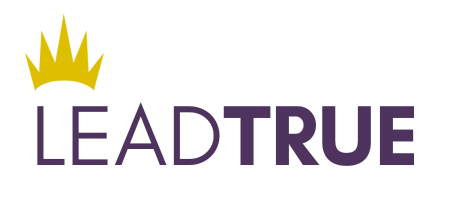Self-Expression (or Knowing When To Call in The Wolf)
This is part of a series of five blog posts on the key components of Emotional Intelligence: Self Perception, Self-Expression, Interpersonal Relationships, Decision Making and Stress Management.
In another blog post, we spoke about Self-Perception. Today we’re moving on to the second building block of emotional intelligence: Self Expression. Self Expression (like all of these building blocks) is made up of three main skills that we can develop over time:
Emotional Expression: Expressing one’s self verbally and non-verbally.
Assertiveness: Asserting feelings and beliefs, defending personal rights and values in a socially acceptable and non-destructive way.
Independence: Ability to be self directed and free from emotional dependency on others. Decision-making and planning are completed autonomously.*
At one point during my Managing Director days, I was told by upper management that I’d have to let go of one of my employees due to some financial errors made at the corporate office (a story all of its own). Since we were already maxed to capacity, we couldn’t lose anyone on our team. I knew this, my creative partner knew this, and our department head knew this. Despite that, upper management kept insisting I find someone to fire.
I was livid. So what did I do with this emotional information rattling my cage? Tell my creative partner. I expressed myself verbally and possibly (okay, probably) loudly. He listened and then expressed his feelings on the situation. We were on the same page. No question.
During the next conference call, I was once again asked who I was going to let go.
“No one,” I replied.
“You have to fire someone,” they said. “When’s it going to happen?”
“Our team shouldn’t suffer because of an accounting error in the corporate office,” I argued. “We’ll be even less likely to hit our targets if we lose someone.”
As you can see, this was the moment I asserted my beliefs and fought for the values my team (and hopefully the company) held as our foundation.
I might not have been as calm, cool and collected as I’d have liked. At one point when upper management became insistent, I said “this wasn’t my mess. It was accounting’s mess. They could hire f*@^ing Harvey Keitel to come in and clean it up.” Okay, so I’m not perfect, but a good Pulp Fiction reference can really hit home.
In spite of what upper management was saying, I knew another option existed. They were crunching numbers (their job) and we were delivering creative projects (our job). All of us wanted what was best for the company. We just saw it from different perspectives. Because of that, I knew that I was going to make my own decision. I also knew they weren’t going to like it. When I made that decision, it fell under the skill of Independence. I didn’t feel dependent on upper management so chose to operate autonomously.
In the last post, we covered Self Regard, another skill critical to this process. If I hadn’t been confident that I could come up with a workable solution, I don’t know that I would’ve acted so boldly. All aspects of emotional intelligence work together.
Whether it’s a work situation or play or somewhere in between, increasing our Self Expression is key to increasing emotional intelligence. So how do we grow these skills.
Emotional Expression:
Rewrite history. You come out of a conversation wishing you had left certain things unsaid. Jot down what you would say if you could get a re-do. Very possibly a similar situation will come up again and you can tap into this new wisdom.
Take a look around. How do people around you react to your emotions? Emotional expression extends beyond verbal. Our colleagues and friends pick up more than we realize. Maybe your expressions and body language contradict what you’re saying or perhaps not saying. Check in with your team to ensure everyone is on the same page.
Express yourself. When you feel something, say something. Be kind, clear, and honest. Letting big emotions go unsaid is a recipe for an unintentional and unrelated argument. If they’re important, one way or another, your feelings will find a way out.
Assertiveness:
Notice the circumstances. We all have certain areas in our lives where we feel more comfortable standing up for our beliefs. Maybe you can easily fight for your team at the office, but can’t have that conversation you need to have with a friend. Or maybe it’s the reverse.
Flex your empathy muscle. Before you take a stand, look at it from the other person’s point of view. How would you want to hear this information? Being on the receiving end will help you adjust your assertiveness volume up or down as needed.
Speak last. When leading a team meeting, let others speak first. Holding your ideas and opinions until the end allows space for others to authentically express themselves. Then when you share your insights, you’ll also have honest feedback from your team.
Independence:
Count the people. Do you have the correct amount of people involved in the decision-making process? Team input is important even when you’re making the final call. However, be careful not to ask for too many opinions. Your own ideas need space to grow.
Make some lists. Check them twice. Think about all of your options, pros and cons. Who will your decision impact? Who are the people with key insights? Review these lists. Where do you need more info? More buy-in? Use these lists to know who to include in your decision-making process.
Don’t be afraid. Be accountable. If you’re afraid of making a mistake, remember that no one is perfect. At the same time, be prepared to be accountable for the repercussions. If you’re missing information, find it. You will only make better decisions by actually making them.
We ultimately resolved our staffing issue with an alternative plan to split one of our employees across lines of business so the salary would effectively get hidden. It was accounting semantics, but it worked.
Later in this series, we’ll dive deeper into decision-making. When I took an independent position from the one upper management wanted me to take, then implemented my course of action, I was flexing other emotional intelligence skills like reality testing, empathy, and problem-solving. I also can’t stress enough how important relationships were to this process. Because of our history and transparent communication styles, both my creative partner and other key players trusted me. When the chips were down, I knew they’d have my back.
Explore this whole series on Emotional Intelligence: Self-Perception, Self-Expression, Interpersonal Relationships, Decision Making and Stress Management.
For a deeper understanding of Emotional Intelligence, I recommend the work of Steven J. Stein author of The EQ Edge and The EQ Leader.
If you’d like to better understand your own emotional intelligence skills, taking the assessment and getting a debrief from a certified emotional intelligence expert might be the right step. Contact me here for more information.
About the Author
Lead True Certified Coach Melissa Thornley operates at the intersection of left brain and right brain. She has years of experience leading creative teams in Chicago, New York, and London specializing in emotional intelligence and instinctive working styles.
She works with coaching clients - from emerging leaders to those leading high impact teams - on a variety of topics including self compassion, leading from empathy, and the power of positive neuroplasticity. Regardless of the format of Melissa’s coaching, she maintains a foundation of collaboration and customization for each client.














Anger is a part of our everyday lives. However, we do have a choice how we respond to the occasional temper flare up. Lead True Certified Coach, Melissa Thornley, shares some proven tips.